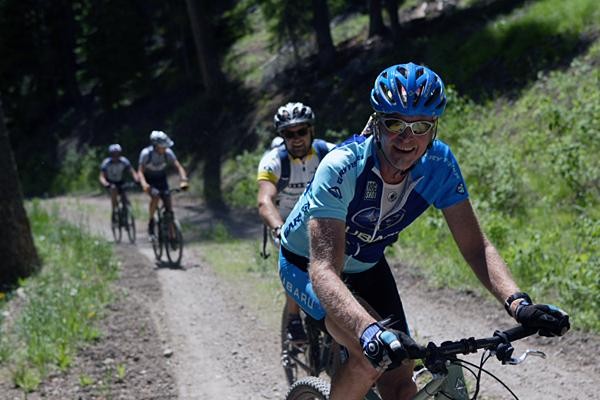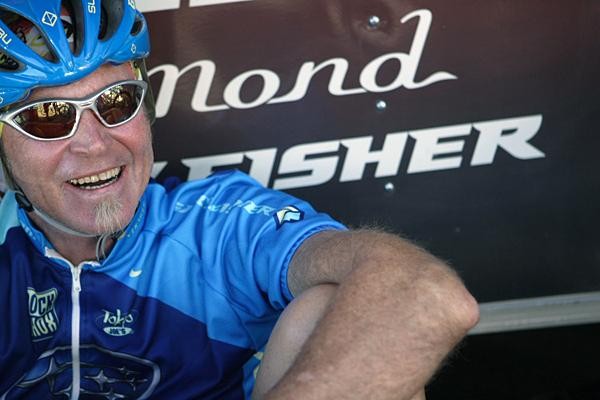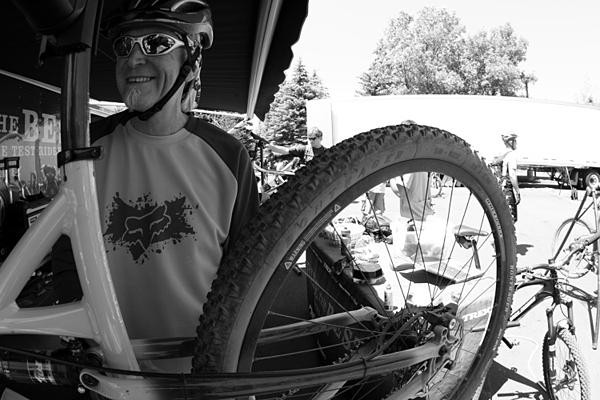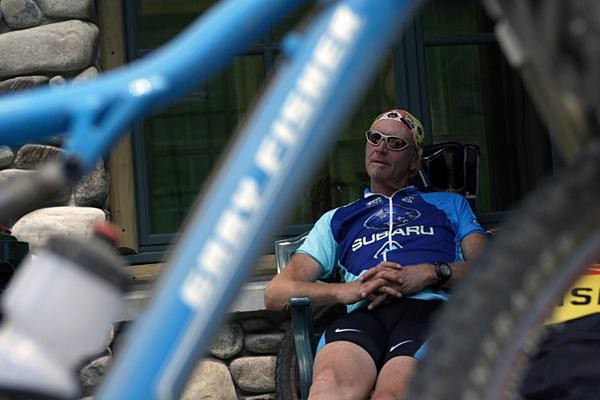Mountain biking's second coming
Gary Fisher has seen a lot of change in mountain biking. During his time in the industry, mountain...








An interview with Gary Fisher, December 7, 2007
One of pioneers of mountain biking, Gary Fisher, is the man behind the Fisher brand mountain bikes. Cyclingnews' Sue George spoke with the Californian to see how he was reading the pulse of the sport.
Gary Fisher has seen a lot of change in mountain biking. During his time in the industry, mountain bikers have graduated from rigid forks and frames and pedals with toe clips and straps to lightweight, plush, full suspension mountain bikes.
Like any sport, the popularity of mountain biking can be expected to rise and fall, but Fisher thinks we may be onto another growth spurt of the relatively young cycling discipline. "Overall sales of mountain bikes are up double digits this year [as of the summer]. It's amazing. It could be we're seeing a second coming of the sport."
Fisher said that in his home state of California, mountain biking is on the rise. "Being a lycra-clad cross country geek was about the uncoolest thing a teenager could do a few years ago. Sometimes something has to hit dead bottom before it can be cool again, and I think we've been there."
Even though retired Trek superstar Lance Armstrong spent very little time on a mountain bike, he may still have helped the sport. "I think Lance brought a lot of legitimacy to the entire sport. There's been no time in last 80 years or 100 years that Americans respected a cyclist like they do today," said Fisher despite the current doping scandals raging at the pro level on the road side of the sport.
"I think mountain biking is starting to mature," said Fisher. "The different sides of it are starting to be well-developed. It sort of started as what I like to call a motor-based sport, with human being as a motor, and it made a definite offshoot into skills-based which is where the jump scene and the free ride scene come in. They both have their absolute legitimacy, and we see that the racing scene is starting to get sorted out - what's popular, what's fun, what people like to do."
Get The Leadout Newsletter
The latest race content, interviews, features, reviews and expert buying guides, direct to your inbox!
More places to ride
Fisher is encouraged by the rejuvenation of the younger side of the sport, and his company is piling the resources behind it. "With kids getting more involved and the proliferation of trailbuilders in the North America and the world, the future is looking golden." In fact, Fisher points to trailbuilding initiatives as the key to bringing the sport to locales never previously associated with mountain biking.
He credits the increase in professional trailbuilders nation and worldwide with the increase in the sport. There are more places for cyclists to ride off-road. Fisher couldn't name one favourite place to ride, but pointed instead to fun riding experiences he's had in Crested Butte, Moab, California, the Dolomites and lesser known local spots in Houston, Texas, and Florida.
"The technology of trail building has paid off in spades. If you have great trail, it doesn't matter what bike you have, it's so much fun to rip."
Still the bike does help
Some of the renewed appeal may be driven by advances in technology that make the sport more accessible to less skilled cyclists. "The technical side of it, along with all technical aspects of consumer goods is accelerating faster and faster and faster; therefore the information side of what's what is ever the more important."
All this information can be overwhelming to some consumers, especially newbies, but Fisher thinks that the proliferation of information and technology will only help human aspect of the sport.
"The consumer is in fear of buying the wrong product and on the web unfortunately, there's so much conflicting information that consumers prefer to go to humans [for advice]. They're going back to people [for example, local dealers] that have integrity and that they can trust to straighten them out. We're seeing better and better shopping experiences…discussions are more evolved technically."
However, Fisher underscored that it's important not to lose sight of the experience through all the technology. "Everyone has to remember we're doing something simple and that's riding a bike."
On the other hand, "the bike may be secondary, but it's important that it work and it's faithful to you and that you're confident in it," he said. "You have to love your bicycle."
Bikes for world peace
Fisher still gets competitive occasionally, but he's more focused on the big picture now. "I still do race a little, but I think I'm going to focus on doing really good work. I'm in my 50s now, and that's when people do their really good work. I want to be the guy that goes out and sees everything and brings it back for discussion."
"The bicycle is the world's happiest invention. It's something that can cure what ails modern society. Fortunately, there's a mighty grassroots movement going in the US and in fact the world where people saying 'The bike is my solution for health and efficiency.'"
"I've been studying that for five years - going around the world, collecting things and bringing them back home and trying them out. Anyone that rides a bike is a friend of mine."
"There are leaders and there are followers. The Chinese are rejecting bicycles as old technology and an old lifestyle and that's because they're following us in a way - maybe, we think, the wrong ones of us."
"In my travels, I see people have different ideals, but the most striking difference is those you see following General Motors and having a fast-car lifestyle, a 'burn it up' and 'hey I earned it and I'll spend it any way I please philosophy.' The opposite is the 'hey, let's take care of this world and leave it a nice place for our children.'"
Fisher is optimistic for change. "It's interesting if you realize that Chinese World Cup racers are after Olympic medals. Think what if one wins a gold medal [in Beijing in August of 2008], maybe it'll start a boom of mountain biking in China? It could be that we'd sell more mountain bikes than we have before. There could be a world-wide shortage. It'd be nuts."
Only time will tell if Fisher is right about the growing popularity of mountain biking.